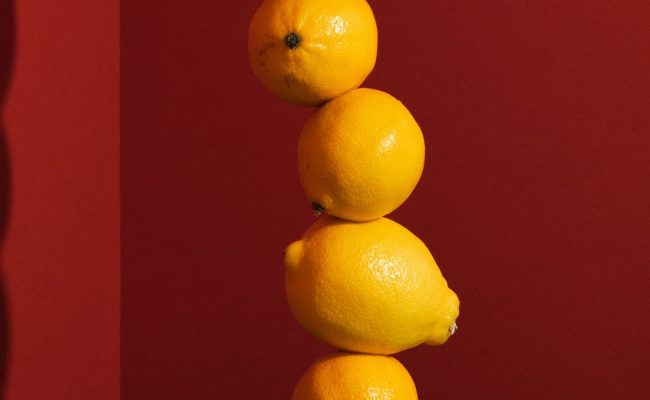Established in 2007, the Overland Judith Wright Poetry Prize for new and emerging poets is supported by the Malcolm Robertson Foundation. Entrants must have no more than one collection of poems published under their own name. This year, the major prize is $6000, and second and third prize is $2000 and $1000 respectively. All three poets will be published in the autumn 2021 issue of Overland.
We received over 900 entries from emerging poets all around the world. We’d like to thank all entrants for their imaginative work, and our judges, Bella Li, Bonny Cassidy, Anne-Marie Te Whiu and Toby Fitch. They rose to the challenging task of reading and judging a diverse and exciting range of poems – the largest pool of entries in the history of the prize.
After careful consideration, the judges have selected eight outstanding poems to form this year’s Judith Wright Poetry Prize shortlist.
Congratulations to the following poets:
Brooke Scobie
‘Bidjigal Double Brick Dreaming’
Inspired by the work of the estimable Samuel Wagan Watson, ‘Bidjigal Double Brick Dreaming’ is a reminiscence of Brooke’s childhood in 1990s Bankstown when her Nan was still alive, still yelling at her Pa down in the Granny flat.
Brooke Scobie is a queer Goorie woman, single mum, emerging writer, and community worker. She was born and bred on Bidjigal country in south west Sydney and now lives on Darkinjung land. Brooke is most passionate about telling stories that centre on identity, love and family using the imagery of country.
Sara Saleh
‘Border Control: Meditations’
Colonial violence extends to everything – our presence, our absence, how we love, how we leave – it undercuts our sense of self, but in the meditative there is relief, an unmitigated refusal to give this violence power.
Sara M Saleh is the daughter of migrants from Palestine, Egypt, and Lebanon, living on Gadigal land. A campaigner, writer, and poet, Sara’s work has been published in English and Arabic, and she co-edited the anthology Arab-Australian-Other. Sara received the 2021 Peter Porter Poetry Prize, and is developing her debut novel.
Frances Libeau
‘sea-tree emblem’
‘sea-tree emblem’ probes at a haunted ecosystem of transcultural postcolonial memory (or lack thereof), spinning through a network of entangled violences, madnesses and mythologies.
Frances Libeau is a queer Pākehā writer and sound artist living in Aotearoa. Their words appear in Poetry New Zealand Yearbook 2021 (for which they placed second in poetry), Oscen, Pantograph Punch and more. Libeau’s sonic compositions feature in interdisciplinary collaborations with artists worldwide. Their first book will be published in 2022.
Yasmin Smith
‘The Saltpan’
‘The Saltpan’ is a poem nuanced with nostalgic connections to the places we have left behind.
Yasmin Smith is an emerging poet of South Sea Islander, Gubbi Gubbi, and English heritage. She has advocated for First Nations literature as a black&write! editor. She is interested in works that explore inter-generational loss and healing. She currently works at University of Queensland Press on Turrbal and Jagera Country.
Harry Reid
‘Book of Hours’
TGIF!
Harry Reid is a poet based in Melbourne. They are a co-director of
Sick Leave, and the author of the best way to destroy an enemy is to make
him a friend (Puncher & Wattmann, 2021).
Brian Obiri-Asare
‘what’s hobbling the beat (a soliloquy in three related rhythms)’
In this poem I’m trying to use word to break silence open by giving it a space to enter, you know, a space that we’ve ignored – the deeply rooted funk shared among black people stemming from the events that have fashioned the diaspora.
Born in Sydney, to Ghanaian migrants, Brian Obiri-Asare is a writer at heart. They presently live and work on the edge of the desert, in central Australia, in Tennant Creek to be precise, on Warumungu country.
Declan Fry
‘Wanala Sunset’
‘Wanala Sunset’ is a linguistic diagram (push the tongue forward), a basketball looping through the ring, an entrance, a noose (last hoop); an infinite collection of Schrödinger cats, in Brunswick, where almost every home now advertises: Black Lives Matter.
Declan Fry is a writer, essayist, and poet. Born on Wongatha country in Kalgoorlie, he received the 2021 Peter Blazey Fellowship and the 2020 Lord Mayor’s Creative Writing Award for memoir. He currently lives on unceded Wurundjeri country with his partner and their cat, Turnip.
Andrew Brooks
‘Threshold’
‘Threshold’ is a poem about how we get to the other side.
Andrew Brooks lives on unceded Wangal land. He is part of the Rosa Press collective and along with Astrid Lorange, is one half of the critical art collective Snack Syndicate.














